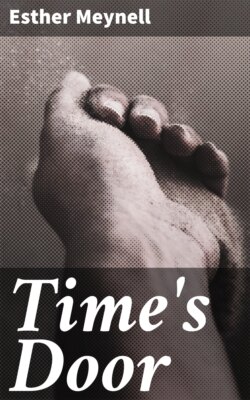Читать книгу Time's Door - Esther Meynell - Страница 18
На сайте Литреса книга снята с продажи.
XV
ОглавлениеLuigi Cavatini died that night, very peacefully, assoiled and conscious. To Gerda, who had seen him so long in a worse death, his going was a release—her own sadness would come upon her later.
When certain necessary things had been done she returned to Rome so that she might the more quickly get in touch with Giovanni. She was very weary as she climbed the flights of cold marble stairs to her home, so long deserted, but her mind was still and uplifted. She felt that her own life had come to some close, she did not know, she did not greatly care, if it were to go on again. Giovanni was all that mattered. Giovanni’s future, that life should yield him a largesse of beauty and joy, that genius—surely that delectable dangerous gift was his?—should not destroy happiness, as it was apt to do. Each step up the old stained stairs was marked in an ascending rhythm by the thought of Giovanni. At the top she paused, to still her heart which was beating unaccountably. As she opened the door she thought she heard Giovanni’s voice—she stayed her step again, and the pulse leaped in her throat. Giovanni was in Milan, weariness and strain must have made her slightly light-headed. She closed the door, and glanced through a little window in the wall at the crowded roofs of Rome below her, and even as she looked another door opened and she heard the undoubted living voice of her son in an astounded cry of “Cara la mia mammina!”
She turned, he was coming swiftly towards her across the tiled floor, his arms held out, his face radiant. She fell forward into his arms—he was grown now taller than herself—and behind him, as a sudden darkness took her brain, she beheld for one shaken and half-conscious moment, the thin black figure of Paganini. He seemed to waver, to stretch up to the ceiling, as shadows cast by a moving candle-flame stretch and waver. Then the blackness of Paganini spread into an universal darkness.
When Gerda returned to consciousness her firstA SWOON thought was that both Giovanni and Paganini would have vanished into that darkness into which she had fallen headlong. But they were both still there when she opened her eyes, Giovanni nursing her head on his knee and awkwardly dabbing at her with a wet cloth, while Paganini stood by, looking as guilty as though he had with his own hand smitten her to the ground.
So soon as he saw she was conscious again Giovanni burst into explanations.
“The Maestro is giving a concert in Rome—we thought it just possible you might be here—I was coming this afternoon to see you——”
Gerda sat up and pushed back her fallen plaits of hair which gave her a strangely young and innocent look.
“Giovanni,” she said, “Your father has died.”
The boy stared at her, caught up in the rushing flood of his own tidings, unable for a moment to adjust his mind to the shock.
Paganini crossed himself, “May his soul rest in peace.”
“I think it will,” said Gerda, “He made a good death, and he is released from the prison of the body.”
Giovanni had in this time assimilated the knowledge of his father’s death. He put his arm round Gerda, “Poor Father. But I will take care of you now.”
Gerda had a sudden realisation that she had never been taken care of since she left her German home—it was always she who cared for her husband, whenever he was with her to be cared for, and then for her son. Men are but babies, whatever their age. She suddenly began to laugh, and her laughter mounted up the scale till it fell down the other side in tears.
